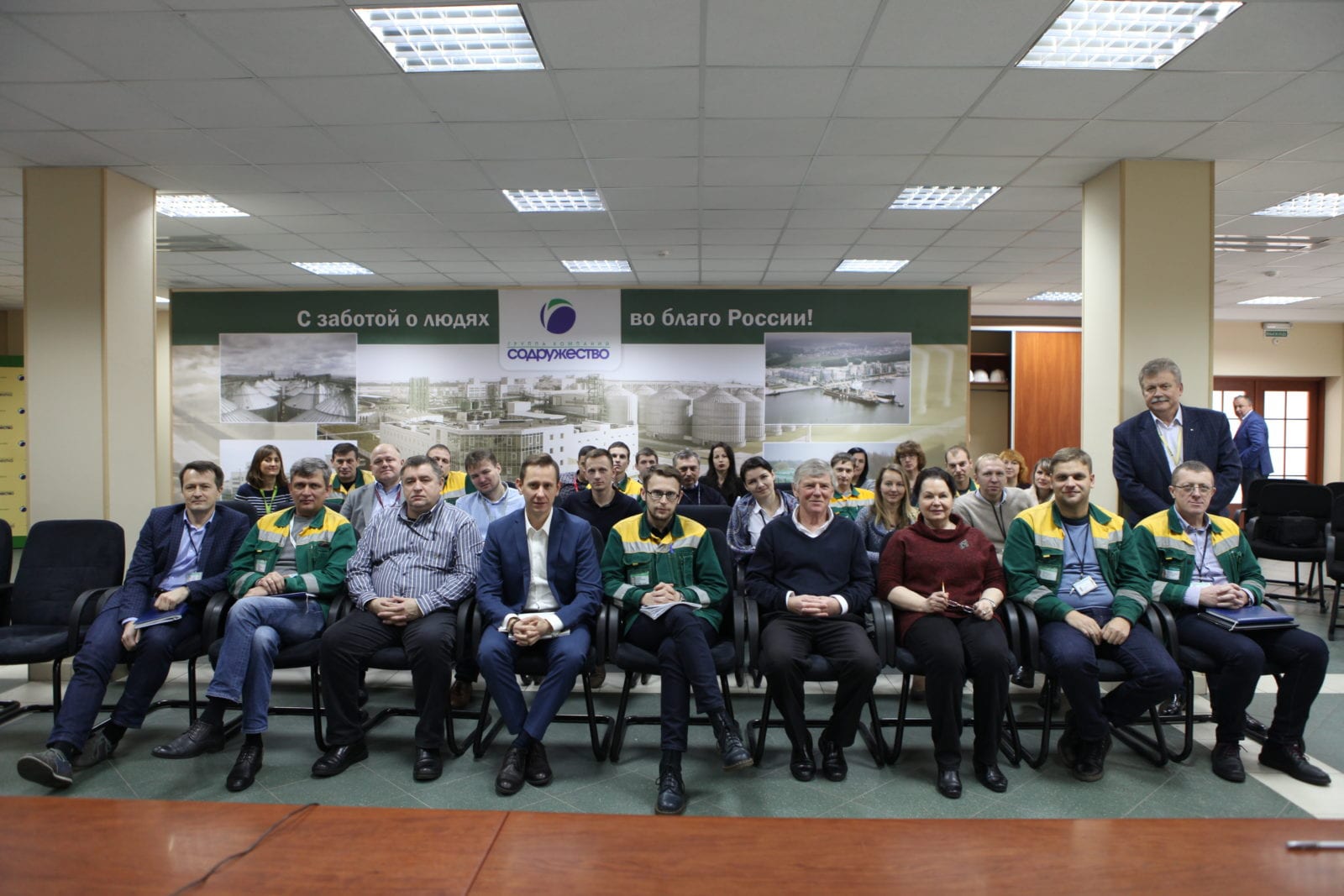USSEC Provides Technical Support to Top Russian Soy Crusher
- Category:
- Animal Utilization
- General News

USSEC recently provided technical support to key Russian customer Sodrugvestvo, one of the biggest European soy crushing facilities, based in the Russian Federation’s Kaliningrad region. Sodrugestvo is the largest soybean crusher in Russia and the Commonwealth of Independent States (CIS), crushing up to 7,000 metric tons (MT) of soybeans and 1,100 MT of rapeseed per day at the Kaliningrad site. Sodrugestvo remains the largest soybean importer and player in the Russian market. The company manufactures a wide range of soy products: soybean meal, soybean oil, white flakes, soy protein concentrate (SPC), soy lecithin, and pelletized soy hulls.
In late November, USSEC animal utilization (AU) consultant Dr. Jan van Eys and local consultant Dr. Maria Domoroshchenkova visited the key Russian customer at the request of Sodrugestvo. Dr. Sergey Gaydamshko, Sodrugvestvo’s production and technology development director, visited the Immanuel Kant Baltic Federal University in Kaliningrad. The university is interested in collaborating with Sodrugestvo in new joined research projects. The USSEC consultants discussed the composition and nutritional properties of soy products and bioactive substances of soybeans. Possible areas of research programs were discussed during this visit.


On the visit’s second day, USSEC consultants provided on-site technical training for specialists and sales managers from Sodrugestvo soybean crushing plants, soy protein concentrate (SPC) plant, and the trade department. About 30 people from production, quality control, and sales attended the seminar.

Topics discussed with local customers included: global soy markets overview; anti-nutritional factors; soybean meal quality and origin and benefits of U.S. Soy, soy products in animal feeding; and modern technologies of soybean processing with an emphasis on fermented soybean meal.

Fermented soybean meal technology and its products were of particular interest for the local customer and this subject was discussed later during the Q&A session. This was followed by a SPC plant and quality control laboratory visit.

Soybean consumption in Russia could be increased through an increase of inclusion rates of soy proteins in local feed formulations. The education of local customers on the nutritional benefits of soybean meal and of second generation soy products such as SPC and fermented soybean meal and the use of these in poultry, animal, and aqua diets is of vital importance for development of the soy market in Russia.
Although short-term soybean market dynamics are disturbed by a temporary suspension of U.S. soybean import and trading down impact, middle and long-term fundamentals remain positive for Russia. This is expected to potentially increase the current usage of soy by the local poultry and swine industries and development of aquaculture production.